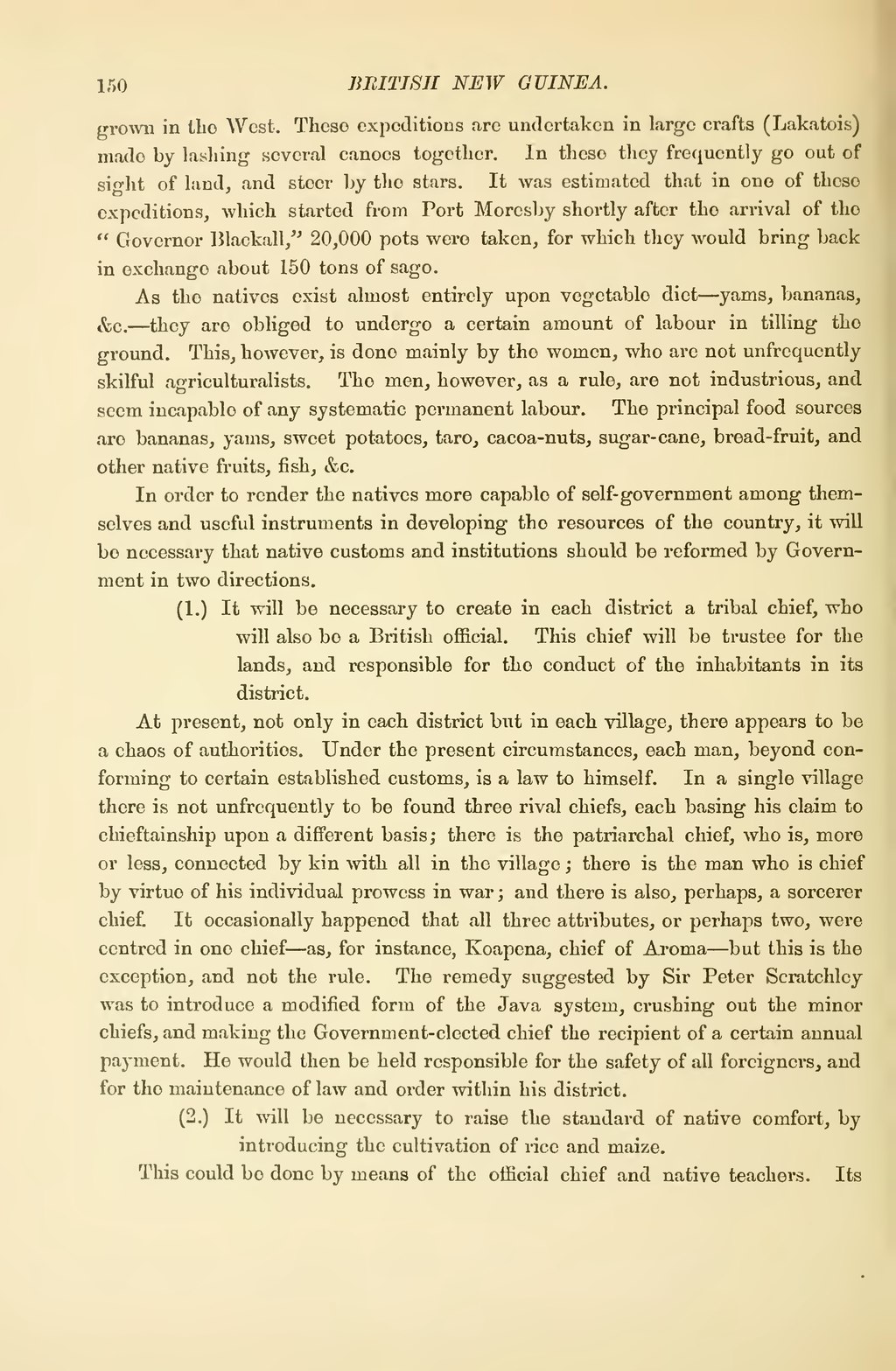grown in the West. These expeditions are undertaken in large crafts (Lakatois) made by lashing several canoes together. In those they frequently go out of sight of land, and steer by the stars. It was estimated that in one of these expeditions, which started from Port Moresby shortly after the arrival of the "Governor Blackall," 20,000 pots were taken, for which they would bring back in exchange about 150 tons of sago.
As the natives exist almost entirely upon vegetable diet—yams, bananas, &c.—they are obliged to undergo a certain amount of labour in tilling the ground. This, however, is done mainly by the women, who are not unfrequently skilful agriculturalists. The men, however, as a rule, are not industrious, and seem incapable of any systematic permanent labour. The principal food sources are bananas, yams, sweet potatoes, taro, cacoa-nuts, sugar-cane, bread-fruit, and other native fruits, fish, &c.
In order to render the natives more capable of self-government among themselves and useful instruments in developing the resources of the country, it will be necessary that native customs and institutions should be reformed by Government in two directions.
At present, not only in each district but in each village, there appears to be a chaos of authorities. Under the present circumstances, each man, beyond conforming to certain established customs, is a law to himself. In a single village there is not unfrequently to be found three rival chiefs, each basing his claim to chieftainship upon a different basis; there is the patriarchal chief, who is, more or less, connected by kin with all in the village; there is the man who is chief by virtue of his individual prowess in war; and there is also, perhaps, a sorcerer chief. It occasionally happened that all three attributes, or perhaps two, were centred in one chief—as, for instance, Koapena, chief of Aroma—but this is the exception, and not the rule. The remedy suggested by Sir Peter Scratchley was to introduce a modified form of the Java system, crushing out the minor chiefs, and making the Government-elected chief the recipient of a certain annual payment. He would then be held responsible for the safety of all foreigners, and for the maintenance of law and order within his district.
This could be done by means of the official chief and native teachers. Its
